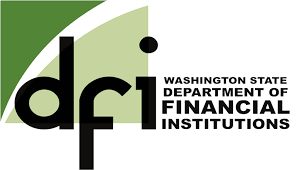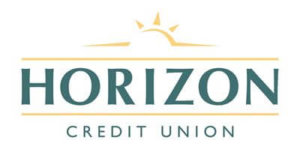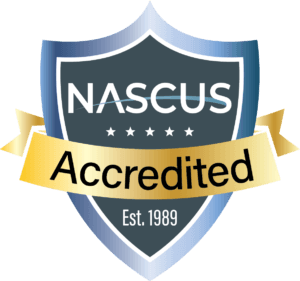Washington Story Archive
BECU Busts Out Digital Envelopes To Help Members Build Savings
The big cooperative puts a new spin on an old trick to help members build a savings discipline.
TOP-LEVEL TAKEAWAYS
June 2, 2023 — BECU Envelopes uses a cash-stuffing principle to help members build an online budget for household expenses. Members can choose their savings goal. The most popular so far involve home, car, vacation, and emergencies. The system already has approximately 25,000 users.
How Does BECU Embrace Its 3 Pillars Of DEI?
Courtesy of Sharon Simpson, CreditUnions.com
The Washington credit union’s expansive strategy addresses not only employees and culture but also the needs of members and communities.
Jan. 20, 2023 — When Jackie Martinez-Vasquez joined BECU ($29.2B, Tukwila, WA) just over two years ago, the cooperative’s DEI efforts focused primarily on employees and some reporting to the board of directors. But the pandemic and the death of George Floyd in 2020 sparked a renewed movement for social justice. Top-Level Takeaways
- BECU’s DEI strategy focuses on three pillars: community, members, and employees and culture.
- Several councils help move the organization’s work forward.
- 900 employees participated in the cooperative’s 2nd Annual Equity Summit this year.
- Read more
 BECU Announces Beverly Anderson as Next President and Chief Executive Officer
BECU Announces Beverly Anderson as Next President and Chief Executive Officer
BECU, the country’s largest community credit union with over 1.3 million members and $30.2 billion in assets, today announced the selection of Beverly Anderson as its next president and chief executive officer (CEO).
Anderson brings more than three decades of experience in the financial services, payments and technology industries to lead BECU, one of the top four credit unions in the country. She currently serves on the board of directors of Expedia Group, Accion and Sword Health, and previously held leadership roles at Equifax, Wells Fargo and American Express. Her experience includes initiating and leading change, driving results, strengthening brands, and innovating on value propositions, including financial health, amid a rapidly evolving financial services industry. READ MORE
Regulatory Guidance in WA for Depository Institutions On Providing Account Services to Money Services Businesses
 October 2022 — For many years certain money services business regulated by the Washington Department of Financial Institutions have found they are categorically excluded from access to account services offered by financial institutions.
October 2022 — For many years certain money services business regulated by the Washington Department of Financial Institutions have found they are categorically excluded from access to account services offered by financial institutions.
These small money services businesses send remittances overseas to vulnerable areas of the world, where poverty is widespread and for whom remittances form a large portion of the gross national product and serve a humanitarian purpose.
The Washington State Department of Financial Institutions has worked closely with money services businesses, depository institutions, federal regulators and state and federal legislators and other stakeholders to develop guidance and tools that will support an appropriate, risk-based approach to providing account services to these businesses. The following documents are designed to supplement existing federal regulatory guidance and are the product of a collaborative process. These documents may be revised as discussions addressing the issue of derisking of some money services businesses continue.
Guidance and Resources from DFI
- DFI’s Guidance Regarding Impact Money Services Business Program
This document is intended to provide supplemental best practice regulatory guidance and expectations for depository institutions looking to provide banking services to money service businesses, specifically those seeking foreign remittance services. - Agreement to Maintain Confidentiality
This Agreement, if signed by all parties, would provide the money service business an opportunity to allow DFI to share the companies Report of Examination and other regulatory information with the depository institution. - Model Master Addendum to Commercial Deposit Agreement
The Commercial Deposit Agreement is a sample agreement that could be used by the depository institution to establish a risk framework with the money service business client. This is not intended to be an all-encompassing document, could be revised by the depository institution, and should undergo standard internal legal review. - October 14, 2022 Letter from DFI Director to Bank and Credit Union CEOs
Letter from DFI Director Charlie Clark to bank and credit union CEOs regarding money services businesses and depositories.
Merger That Crossed State Lines is Now Complete
Courtesy of CUToday.info
A credit union merger that crossed state lines has been completed.
August 2, 2022 — Horizon Credit Union in Washington said its merger with Great Falls, Mont.-based Embark CU is now finished. Embark CU’s members gave the combination their OK in May.
For Horizon CU, its FOM now expands into north central Montana.
According to Horizon, Deb Evans, the president and CEO of Embark CU, will “lead the local market in the new organization” and will sit on the Embark Advisory Board.
“Joining forces gives our members and employees expanded products and services that will enhance their banking experience,” said Evans, who has been with the credit union since 1995. “Years ago, our board of directors chose ‘Embark’ to signal our members’ financial journey and merging with Horizon continues that journey. Together we are not just bigger, but better and stronger. Our combined presence and involvement in the Great Falls and the surrounding area will benefit not only our members but the communities themselves.”
‘Strengthening Communities’
Added Jeff Adams, president/CEO of Horizon CU, “Each of our credit unions care about strengthening the communities we serve and providing quality service to our members. I look forward to seeing what our organizations are able to accomplish together.”
Horizon CU reported it first entered the Montana market via a merger with the former Montana First Credit Union in 2012, and in the decade that has followed it has continue to grow and is now the third-largest CU in the Big Sky state.
The merged CU has $1.8 billion in assets, 31 branches, more than 400 employees and more than 113,000 members.
Welcome to GoWest Credit Union Association: CU Industry’s First Six-State Trade Group Announces New Name & Brand
Courtesy of Peter Strozniak, Credit Union Times

After officially merging on June 30, the Mountain West and Northwest credit union associations announced Tuesday its new name and brand – GoWest Credit Union Association.
“The GoWest brand is a true representation of the collaboration, commitment and innovative nature of the credit unions we serve,” GoWest President/CEO Troy Stang said in a prepared statement. “They are steadfast in their passion to serve the evolving needs of their members, and GoWest embodies that mindset.”
GoWest is the industry’s first six-state trade group that represents more than 300 credit unions, 33,000 employees and their 16.5 million consumer members across Arizona, Colorado, Idaho, Oregon, Washington and Wyoming.
When developing the new brand, extensive research was conducted and included gathering feedback and insights from credit union leaders in all six states, policymakers, regulators and staff into the association’s value proposition, according to the trade association.
“Our new logo connects us to our western heritage by forming an abstract mountain and sun while the clean, fluid lines indicate a path, which speaks to the journey our member credit unions take with us,” GoWest SVP of Marketing, Communications and Events Danielle Sittu said in a prepared statement. “The tagline – Go Forward. Go Together. – is very powerful, clean and simple. We are an association of cooperatives, and this is how we roll.”
The newly combined organizations also said they will launch a new website in January 2023 at gowestassociation.org.
 BECU CEO Looking Ahead to Retirement
BECU CEO Looking Ahead to Retirement
BECU’s CEO and President Benson Porter to retire at the end of 2022.
June 14, 2022 — BECU’s CEO and President Benson Porter announced that he is retiring at the end of the year, after ten years leading the credit union and more than 35 years in the financial services industry.
“I’m incredibly proud of the work we do at BECU and the positive difference our employees make each day in serving our members and communities, especially navigating through the pandemic. The past two years have inspired self-reflection for us all and reinforced for me that the time is right for me to retire,” said Porter. “Over the next few months, I remain committed to our work of transforming our employee and member experiences and helping set the stage for the next chapter of BECU. I am confident our next leader will bring fresh approaches to drive our work forward in line with our purpose.”
A Decade of Leadership
During Porter’s time at the credit union, BECU has grown from just under $10 billion in assets to more than $30 billion in total assets today. During that same period, membership grew from over 800,000 members to more than 1.28 million members this past year. The credit union also expanded its business services to serve over 68,600 business members in its local communities.
BECU’s giveback to its members and communities has also increased. In 2012, the credit union returned $115.3 million to its members through better rates and fewer fees compared to bank averages. Last year, BECU’s return to the membership grew to $322.7 million. Part of that increase was driven by broadening its Reprice program to include more opportunities for lower rates on BECU loans or products. Additionally, its grant funding to local nonprofits increased from $1.1 million to $5.8 million in that same timeframe. This included the launch of its People Helping People Awards program, which has dedicated over $3 million of grant funding to member-nominated organizations since 2013.
Recruiting a New Leader
The BECU Board of Directors has established a CEO Succession Committee to select its new leader. Recruiting efforts will begin soon, which includes executing a nationwide search that will consider internal and external applicants. The Board will keep employees and members updated as the recruitment process is underway and there is information to share.
BECU Reports Robust 2021; Says it Returned $322M in Value to Members
Courtesy of CUToday.info
May 2022 — BECU is reporting robust membership and asset growth during 2021, including returning more than $322 million to members through better rates and fees when compared to banks.
The data was released as part of its 2021 Annual Report ahead of its sixth annual Member Summit event.
BECU reported it closed out 2021 with more than 1.3 million members (a 4.5% increase), $30.2 billion in assets (a 12.7% increase) and a net worth (capital) ratio of 9.82%. In addition, over 17,600 members joined BECU digitally in 2021, a 21.2% year-over-year growth.
“Since our founding in 1935, BECU has dedicated itself to supporting members during challenging times, and this past year was no exception. We continued to evolve how we serve our members and communities and are proud to see our overall efforts making positive impacts on their financial health,” said Benson Porter, BECU’s president and chief executive officer, in a statement. “Our history of steady growth and financial stability enables us to help more members navigate economic uncertainty and save for a rainy day, while also focusing on the long-term strength of our business and giving back to the communities we call home.”
Below, BECU offers a breakout of how it said it has returned value to members.
Return to Members
BECU said it has returned $322.7 million to its members last year through better rates and fewer fees compared to bank averages (an average of $245 per member). One example, the credit union said, is its Reprice Program, which automatically reduces interest rates on qualifying loans and credit cards for those who demonstrated healthy financial habits. More than 48,000 members saved more than $2.2 million through the program, BECU said.
Additionally, the credit union said it helped ease the impacts of the pandemic through more than 2,100 payment relief actions by waiving fees and offering deferred payments for members.
Member Products and Services
In 2021, BECU said it rolled out new and improved product and service offerings designed to enhance the member experience, including:
- Testing new BECU Envelopes, which helps members direct money toward specific savings goals through various digital “envelopes” within their BECU savings or Money Market accounts.
- Expanding its loan payment window from 12 to 27 days, simplifying the process for early member loan payments.
- Increasing financial accessibility for sight-impaired members by launching new braille and raised, embossed credit cards and redesigning its online Money Manager tool.
In addition, BECU said to better support its more than 68,600 business members, it enrolled 38,000 LLCs, corporations and partnerships in its new Business Online Banking platform. The credit union also funded 2,500 loans for a total of $70.6 million through the Small Business Administration’s Paycheck Protection Program (PPP), helping keep approximately 7,800 jobs on the payroll.
Extending Community Support
To support local communities, BECU donated $5.8 million in cash and in-kind donations last year to nonprofit organizations and partners focused on increasing financial well-being. According to BECU, those key efforts included:
- Grants to a variety of local organizations that offer financial education and training, workforce and entrepreneur development, and safe and affordable access to financial services, including SNAP (Spokane Neighborhood Action Partners), FareStart, Business Impact NW and NW Innovation Resource Center.
- Black Community Development Project: the second year of a five-year $5 million commitment to support nonprofit partners that improve the Black community’s financial health and well-being.
- Member-Inspired Giving: granted $535,000 to more than 30 nonprofit organizations and BECU members that dedicated their time to helping others in BECU’s service areas through its annual People Helping People Awards program.
Financial Education
BECU said it also helped educate more than 13,100 people through free financial health programs, including BECU-hosted online webinars and seminars, one-on-one Financial Health Checks and financial reality fairs. In addition, BECU partnered with GreenPath Financial Wellness to provide free financial counseling to over 3,700 members, helping them to enroll in plans to repay more than $5.4 million in debt.
Longtime Employee Lauren Pangburn Says Her Goodbyes Upon Retirement

Courtesy of Horizon Credit Union
February 7, 2022 — After 43 years of working for Horizon Credit Union, executive secretary Laurel Pangburn has announced her retirement.
Since the credit union’s early years, Laurel has been a passionate and deeply loved part of Horizon. She has been a part of the credit union’s growth and has seen Horizon flourish to where it stands today. When she started working for Horizon in 1979, named Kaiser Federal Credit Union at the time, the credit union had only two branches and approximately 12 employees. Now, Horizon has over 400 employees and 28 branch locations across four states.
Laurel is truly part of the fabric and culture at Horizon. She has worked in a variety of roles from accounting to member service and even as a branch manager. In her 43-year tenure, she has met members, volunteers and employees with kindness, graciousness and the smile of a friend.
CEO Jeff Adams says on working with Laurel, “Laurel truly cares about others and it shows in her daily walk. Whether it’s our members or other employees, our lives are all richer for the opportunity we have had to work alongside Laurel!”
When Laurel reflects on what made Horizon a great place to work, she said that “the employees, board of directors, supervisory committee, even the members keep Horizon going. The Horizon family is amazing, and I will miss them.”
12 Northwest Credit Unions Receive Emergency Capital Investment Program Grants
December 16, 2021 — Twelve Northwest credit unions with CDFI certification will receive tens of millions of dollars in Emergency Capital Investment Program grants. The funding was announced by the U.S. Treasury on Dec 14. The funds will help credit unions in their continued support of consumers, businesses, and communities that are disproportionately impacted by the pandemic.
“The Northwest Credit Union Association and the Northwest Credit Union Foundation continually encourage our member credit unions to leverage resources such as ECIP grants so they can better serve their members,” said Sharee Adkins, Executive Director, NWCUF. “These grants are going to have an enormous impact as credit unions use them to provide loans, forbearance, and other financial relief to the communities that most need this help.”
DFI Receives High Marks in Accreditation Review from CSBS and NASCUS, Is Only Third Agency in Nation to Earn MSB Accreditation
August 11, 2021 — Conference of State Bank Supervisors and National Association of State Credit Union Supervisors rated DFI units highly after rigorous review of agency work in regulation, supervision, legislation and consumer outreach work
Olympia – The Washington State Department of Financial Institutions (DFI) recently received bank and mortgage re-accreditation from the Conference of State Bank Supervisors (CSBS), Credit Union re-accreditation from the National Association of State Credit Union Supervisors (NASCUS) and Money Services Businesses (MSB) accreditation from CSBS. Washington’s DFI is one of only three states to have received MSB accreditation.
“I’m extremely proud of our agency,” DFI Director Charlie Clark said. “I had no doubt we’d receive accreditation – the staff at DFI are experts in their fields and some of the most dedicated people I know. DFI’s stated vision is ‘Leading the way in consumer protection and financial services regulation’ and we do that. These reviews, re-accreditations and new MSB accreditation are a testament to that vision.”
Washington State DFI Receives 2021 NASCUS Re-Accreditation
 July 29, 2021 – The National Association of State Credit Union Supervisors (NASCUS) is proud to announce the Washington Department of Financial Institutions- Credit Union Division has earned Re-Accreditation following a series of in-depth reviews and assessments by a panel of veteran state supervisors.
July 29, 2021 – The National Association of State Credit Union Supervisors (NASCUS) is proud to announce the Washington Department of Financial Institutions- Credit Union Division has earned Re-Accreditation following a series of in-depth reviews and assessments by a panel of veteran state supervisors.
“Accreditation is direct evidence of an agency’s capabilities and benefits all credit unions in the state as well,” said NASCUS President and CEO Lucy Ito. “It recognizes the professionalism of a state agency’s regulators, supervisors, and staff, while potentially delivering an impetus and support for legislation to modernize state law and policy changes to advance state supervisory processes and best practices.”
NASCUS accreditation is a robust process that includes disciplined self-evaluation, peer review, and ongoing monitoring. The process, administered by the NASCUS Performance Standards Committee (PSC), measures a state regulatory agency’s ability and resources to carry out its regulatory and supervisory programs effectively.
“Our department examines state-chartered credit unions operating in Washington to ensure their compliance with our laws. The value of NASCUS accreditation is that it shows our stakeholders that as examiners and as an agency we meet the highest standards nationally and are following best practices,” said Charlie Clark, Director of the Department of Financial Institutions. “I am proud of our team for receiving Accreditation.”
Washington DFI and Partners Provide Financial Capability Month Opportunities to Increase Consumer Knowledge
April 6, 2021 — Whether learning to count coins or how to invest in mutual funds, DFI and partners have information for Washington residents to become more informed and confident with money
Olympia – The Washington State Department of Financial Institutions (DFI) and Governor Jay Inslee recognize April as Financial Capability Month 2021. The President of the United States (link is external)also recognizes April as Financial Capability Month, as do many national organizations. In addition to the webinars and online presentations staff conducts, DFI partners with state and national organizations and agencies to support financial education outreach efforts for Washington residents of all ages.
“At DFI, we recognize the importance of financial capability for consumers,” DFI Director Charlie Clark said. “The more consumers know, the more questions they’ll ask. Financial knowledge will hopefully make it less likely for Washingtonians to fall victim to financial fraud and will help individuals build financial resiliency to help weather tough times.”
We are stronger when we work together, and DFI recognizes the power of partnership. Therefore, DFI is happy to share the events, webinars, workshops and information from our many partners in an effort to get more information into the hands of more people.
Northwest Credit Union Association Releases Economic, Community Impact Report
Landmark study documents $11 billion impact, volunteerism and charitable contributions and extraordinary services by credit unions throughout the COVID-19 pandemic.
March 23, 2021 — Credit union advocates in Idaho, Oregon and Washington have new, data-rich tools to support their advocacy and public awareness work this year. The Northwest Credit Union Association (NWCUA) is providing its member credit unions with a suite of resources documenting credit unions’ economic and community impact. The community data was collected in NWCUA’s Community Impact Reporting Tool (CIRT), which was created by the association to document credit unions’ focus on financial well-being, volunteerism and charitable contributions, and special lending to rural communities, first-time homebuyers and other populations that not-for-profit cooperative credit unions are uniquely positioned to serve. The impressive economic impact report was prepared by ECONorthwest, one of the region’s most respected economic firms.
In addition to data, the NWCUA is providing its members with communications collateral such as infographics, social media posts and a library of member stories, so they can customize and share the impact in their own communities.
“The economic and community impact reports document how credit unions collectively generate and deliver real, tangible value to members and communities,” said Troy Stang, NWCUA President and CEO. “Our strategic priority, in creating the Community Impact Reporting Tool, and in commissioning the economic study, is to position credit unions to help the public and policymakers understand exactly how credit unions’ not-for-profit, cooperative structure enables them to drive such impact.”
Super Parity Rule Effective in Washington
The Washington State Department of Financial Institutions’ Division of Credit Unions (DCU) published final rule creating procedures for credit unions requesting powers and authorities authorized in other states. Under WAC 208-400-040, a credit union must send notice to the director of the DCU expressing its intent to exercise a power or authority that it would have if it were an out-of-state credit union.
The written notice must include:
- A description of the specific proposed powers or authorities and how the power or authority will serve the convenience and advantage of the credit union’s members;
- The state law citations upon which the powers or authorities were;
- A description of the policies, procedures, or other documents the credit union will use in implementing the powers or authorities;
- A description of how the powers or authorities will impact the credit union’s safety and soundness, including net worth and earnings; and
- Any actions planned to mitigate the safety and soundness risks created by the requested powers and authorities.
Unless a waiver extension is needed, the request is deemed granted within 30 days after delivery to the director, if the director has not taken any action.
Legislation Allows CUs to Hold Public Funds
June 14, 2018 — Recently, legislation took effect that permits Washington credit unions to hold unlimited public funds. After years of being capped at the $250,000 insurance limit, H.B. 1209 authorizes municipalities to deposit unlimited public funds above the insurance limit, into credit unions located in counties populated by 300,000 or fewer people. Credit unions accepting unlimited public funds deposits will collateralize the funds. The Washington State Department of Financial Institutions Division of Credit Unions and Washington State Treasurer’s Office are now working with the Northwest Credit Union Association and credit unions, to implement the process.
Washington, Oregon CUs Have $7.7-Billion Economic Impact
Feb. 3, 2017 — Credit unions in Oregon and Washington created a $7.7-billion economic impact in 2016, according to a new analysis released by the Northwest Credit Union Association. The analysis, performed by ECONorthwest, measured jobs, economic output, and income supported by credit unions in the regional economy. (CUToday.info) READ
What’s new in your state?
Click here to submit your state-chartered credit union news stories to NASCUS today!

